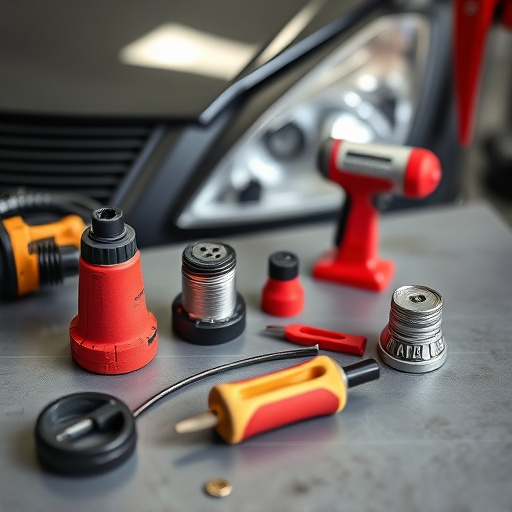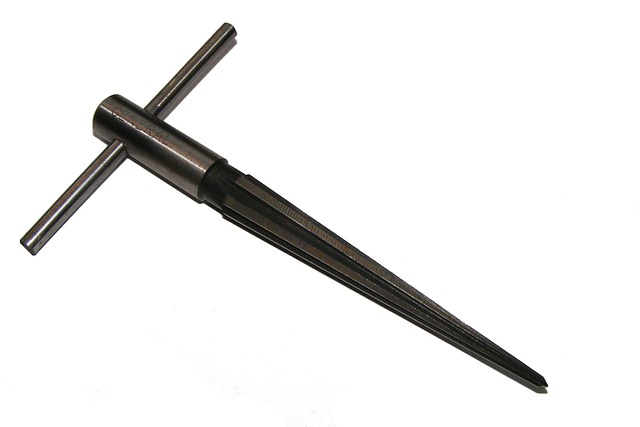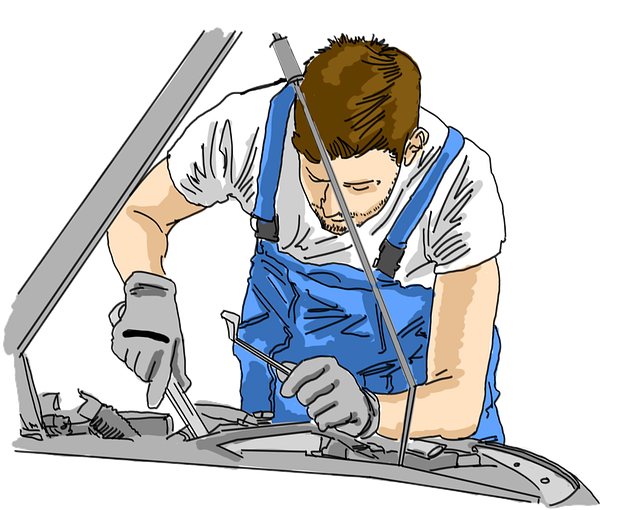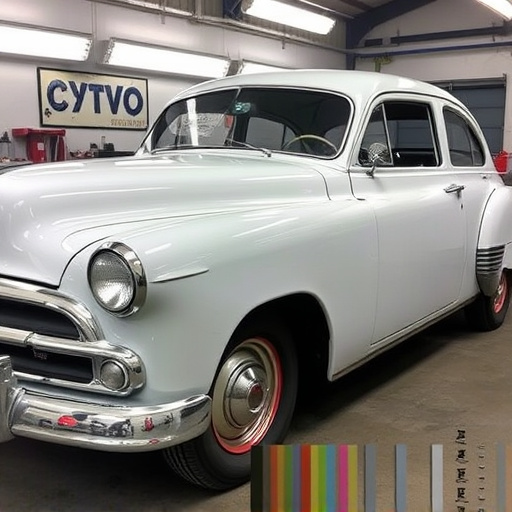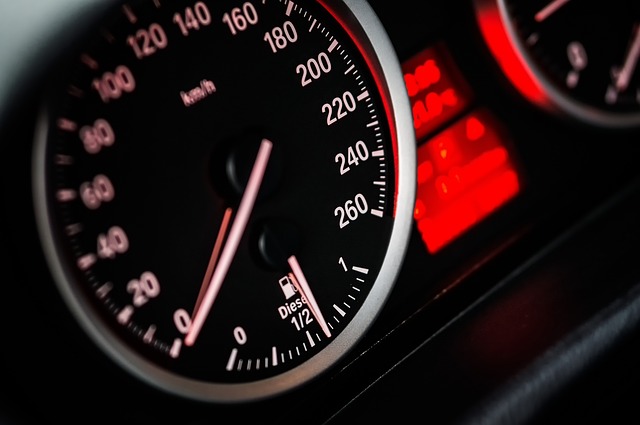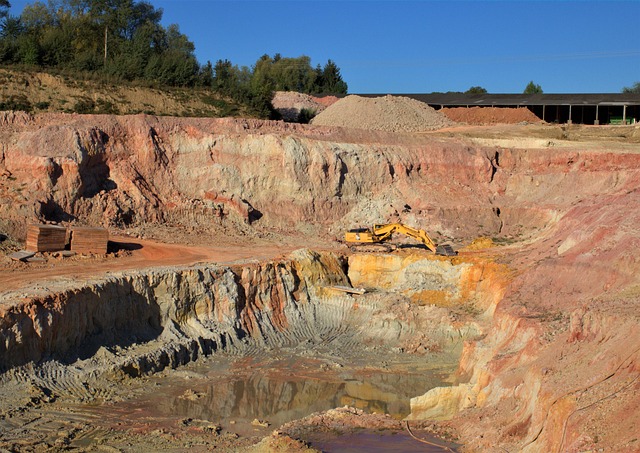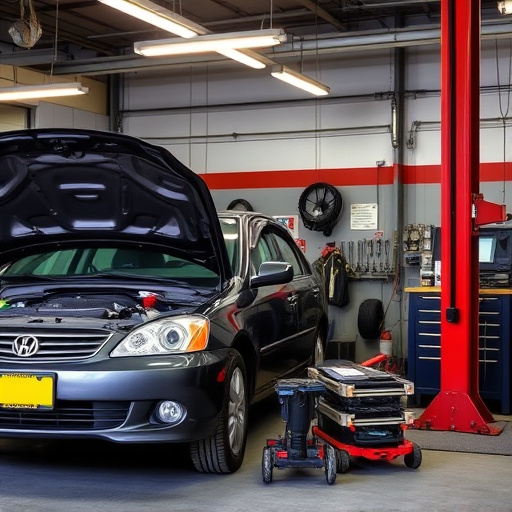Resistance Spot Welding (RSW) is a highly precise and versatile technique for joining metal sheets, utilizing electrical resistance to generate heat at specific points, ideal for intricate designs in industries like automotive manufacturing and collision repair. It offers numerous advantages over traditional welding methods, including reduced heat input, minimal distortion, superior weld strength, faster production, and less waste, making it particularly suitable for car restoration applications that require preservation of original aesthetics. RSW's precision control, efficiency, and reliability make it a preferred choice for high-volume production and specialized auto repair operations across diverse sectors.
Resistance Spot Welding (RSW) is a precise and powerful joining technique gaining traction in modern manufacturing. Unlike traditional methods, RSW offers unique advantages by creating strong, permanent bonds without excessive heat or material waste. This article explores the fundamentals of RSW, its diverse applications, and how it enhances processes across industries. Discover why this technology is revolutionizing assembly lines and becoming an indispensable tool for manufacturers worldwide.
- What is Resistance Spot Welding?
- Advantages and Applications of Resistance Spot Welding
- Enhancing Manufacturing Processes with Resistance Spot Welding Techniques
What is Resistance Spot Welding?

Resistance spot welding is a precise and controlled process that joins two or more metal sheets by applying heat through electrical resistance. This technique involves focusing a high-intensity current between two electrodes, which generates heat and fuses the metals at a specific “weld spot.” Unlike traditional welding methods, resistance spot welding is highly localized, making it ideal for intricate designs and fine-tuned applications. It’s particularly favored in industries such as automotive, where precision and efficiency are paramount, especially during car body shop and collision repair processes.
This method offers significant advantages when compared to other joining techniques, including reduced heat input, minimal distension, and excellent weld strength. These benefits translate to less material waste, faster production rates, and superior part quality in industries like car restoration, where maintaining the original integrity and aesthetics of components is crucial.
Advantages and Applications of Resistance Spot Welding

Resistance Spot Welding (RSW) offers a multitude of advantages that make it an indispensable process in various industries, especially automotive manufacturing and auto repair shops. One of its key benefits is the ability to create strong, permanent bonds between metal surfaces with minimal heat input. This makes RSW ideal for intricate assemblies where precise control over weld quality and location is crucial, ensuring structural integrity without compromising material properties.
The versatility of RSW extends beyond its use in auto manufacturing for body panels and frames. It also finds application in auto painting and maintenance, where accurate welding ensures that repairs are both robust and aesthetically pleasing. The non-distortion of the weld area allows for precise alignment, preserving the original design and finish, which is particularly important when dealing with intricate or delicate components. This method’s efficiency and precision make it a preferred choice for high-volume production runs and specialized auto repair operations alike.
Enhancing Manufacturing Processes with Resistance Spot Welding Techniques

Resistance spot welding has emerged as a powerful tool for enhancing manufacturing processes across various industries, with its unique ability to create strong and precise bonds. This technique involves applying heat through electric resistance at specific points on materials, allowing for fast and efficient joining of metals. Its advantages are particularly noticeable in the automotive sector, where it’s widely used for vehicle body repair and assembly. Resistance spot welding enables manufacturers to produce complex components with intricate designs, ensuring structural integrity and precision.
Moreover, this method is ideal for bonding different types of metals, making it versatile for various applications beyond auto painting and vehicle bodywork. It minimizes material waste, reduces cycle times, and enhances overall productivity on the shop floor. The consistent quality and strength of welds achieved through resistance spot welding make it a preferred choice in industries where reliability and safety are paramount.
Resistance spot welding (RSW) offers numerous advantages in modern manufacturing, from its precision and efficiency to its ability to join a wide range of materials. By understanding and leveraging RSW techniques, manufacturers can streamline processes, reduce waste, and create high-quality, durable products. This powerful method continues to be an indispensable tool for various industries, ensuring a bright future for precise and reliable welding solutions.


